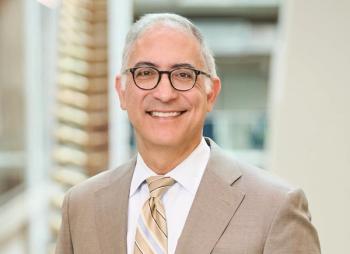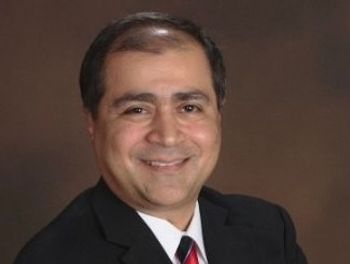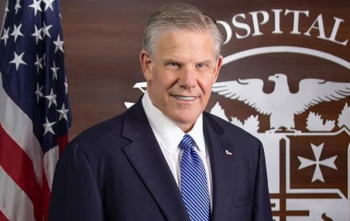
Oracle chairman Larry Ellison envisions national electronic health database
Now that the tech giant has completed its $28-billion acquisition of Cerner, Ellison outlined how the merged company aims to transform the healthcare industry.
Days after completing the acquisition of Cerner, Oracle announced plans to build a national electronic health record database.
Oracle completed its $28-billion acquisition of Cerner, the nation’s second largest electronic health records company, on June 8. Larry Ellison, Oracle chairman of the board and chief technology officer, outlined his vision on how he thinks the deal will transform healthcare at an online news event Thursday, June 10. The event was titled, “The Future of Healthcare.”
Ellison positioned healthcare as the focus of the company. He touted planned innovations in electronic health records and other electronic systems to help hospitals manage administrative functions. Ultimately, he said the combined company will deliver better patient outcomes, improve public health policy and lower costs.
“That is now our primary mission here at Oracle,” Ellison said during the news conference.
- Related story:
What Oracle’s acquisition of Cerner means for healthcare
‘We’re going to solve this problem’
Oracle is going to build a national health record database that can be accessible from all hospitals around the country, Ellison pledged.
Oracle and Cerner “have all the technology required to build a revolutionary new health management information system in the cloud,” he said.
Today, health record systems “are hospital-centric, not patient-centric,” Ellison said. “Each hospital system has their own health management system.”
The fragmentation of patient data and health record systems “causes tremendous problems,” Ellison said.
Hospitals can easily access any patient’s financial information. But if someone is traveling and needs hospital care, the health system can’t simply call up an electronic record to find a patient’s blood type or allergies to medicine.
“We're going to solve this problem,” Ellison said, explaining his plans for a unified health records database.
In his vision, Ellison said all the data will be anonymized, and he vowed there will be absolute data security.
Oracle also aims to make Cerner’s electronic health record system, Millennium, much easier to use, according to Ellison. Specifically, he said Oracle is going to add a voice user interface with the system. Doctors will be able to simply say they want to see a patient’s latest X-rays, Ellison said.
“It makes the system much easier to learn and use. It frees up a lot of doctor’s time to meet with patients rather than enter data,” Ellison said.
The current system can be “very tricky to use,” he said.
The voice user interface will also allow doctors to record clinical notes without having to write them down, the company said.
‘The opportunity to change healthcare’
Ellison also highlighted other steps to help health systems by automating reimbursements between payers and providers, saving time in negotiating prices. The company also plans to improve its human resources systems for hospitals.
David Feinberg, formerly Cerner’s CEO and now the president and CEO of Oracle Cerner, echoed Ellison’s bold predictions for what is to come.
“We have the opportunity to change healthcare like it’s never been done before,” Feinberg said.
The plans to provide an improved electronic health record system will give doctors better information, Feinberg said.
Patients will also see fewer headaches with an improved system, he said.
‘“For patients,” Feinberg said, “the end of worrying about, does the right hand know what the left hand knows?”
Brenna Quinn, Oracle Cerner chief product officer, said the company firmly believes the electronic health record can be transformed from a system of billing to “the complete source of information for a person’s healthcare.”
With a better electronic health record system, Quinn said, “We can make healthcare more proactive, more accessible, and more equitable.”
Feinberg concluded his remarks with a bold statement on the potential of the newly merged company.
“We’re bringing world class technology coupled with a deep understanding of how healthcare works,” Feinberg said. “I don’t think anyone’s done that before.”
Oracle said last week that
Analysts have speculated Cerner’s purchase of Oracle could prompt other tech giants to make moves to get a bigger presence in the healthcare field. In March, Microsoft concluded its $20 billion acquisition of Nuance, the voice technology company.
There has certainly been interest in electronic health record companies. In February, the private equity firms Bain Capital and Hellman & Friedman completed the acquisition of athenahealth, an electronic health record company, in a $17 billion deal. The deal was initially announced late last year.
Analysts expect the deal between Atrium Health and Advocate Aurora








































